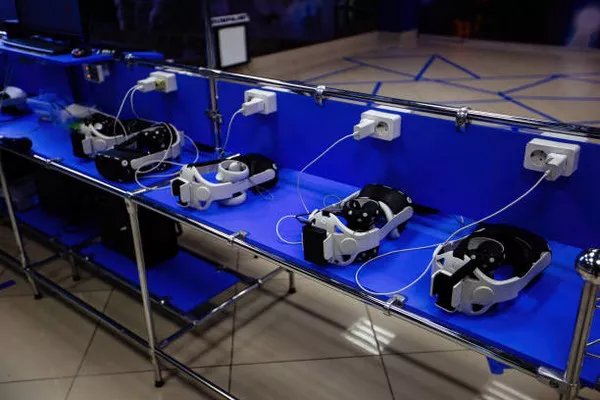In an era where power outages are an unfortunate reality, generators serve as indispensable assets, providing a reliable source of electricity during unforeseen disruptions. Homeowners, businesses, and industries heavily rely on these machines to ensure continuous operations and maintain a sense of normalcy. One of the critical considerations when investing in a generator is understanding its lifespan. In this article, we delve into the factors influencing the longevity of generators and provide insights into how to maximize their operational lifespan.
Types of Generators
To comprehend the lifespan of generators, it’s essential to first understand the various types available in the market. Generators come in different forms, including portable generators, standby generators, and industrial generators. Each type caters to specific needs and has distinct features that impact its longevity.
Portable generators, often used for temporary power solutions, are generally smaller and more compact. Their lifespan typically ranges from 1,000 to 2,000 hours of operation. Standby generators, designed for continuous operation during power outages, boast a longer lifespan, averaging between 10,000 to 30,000 hours. Industrial generators, engineered for heavy-duty applications in large-scale settings, can endure even more extended periods of use, often exceeding 30,000 hours.
Maintenance Practices
The key to extending the life of any generator lies in diligent and regular maintenance. Neglecting routine maintenance not only decreases efficiency but also accelerates wear and tear. Common maintenance tasks include oil and filter changes, inspecting and tightening electrical connections, testing the battery, and ensuring proper ventilation.
Regular oil changes are particularly crucial as they prevent friction and wear within the engine components. Dirty oil can lead to increased heat and decreased lubrication, ultimately shortening the generator’s lifespan. Following the manufacturer’s recommended maintenance schedule is vital, and adherence to routine checks significantly contributes to a generator’s overall durability.
Load Capacity and Operation Hours
Generators are designed to handle specific loads, and exceeding these limits can significantly impact their lifespan. Operating a generator consistently at or near its maximum capacity places excessive stress on the engine, leading to faster wear and potential breakdowns. It’s crucial to match the generator’s capacity with the load requirements and avoid overloading.
Additionally, the total number of hours a generator operates directly correlates with its lifespan. The cumulative runtime is a critical factor, and understanding the duty cycle – the ratio of on-time to off-time – is essential. Generators that operate continuously for extended periods without proper intervals for cooling and maintenance are prone to premature failure.
Environmental Factors
The operating environment plays a pivotal role in determining the longevity of a generator. Factors such as temperature, humidity, and altitude can significantly impact its performance. Generators exposed to extreme weather conditions may experience accelerated wear on components, including the engine, alternator, and electrical systems.
Proper installation and housing can mitigate the impact of environmental factors. Adequate ventilation and protection from harsh weather conditions contribute to a generator’s longevity. Regular cleaning to remove dirt, debris, and corrosive substances is crucial, particularly for generators installed in outdoor settings.
Quality of Components
The build quality and components used in the construction of a generator have a direct impact on its lifespan. High-quality materials and precision engineering result in a more robust and durable machine. When investing in a generator, it’s essential to consider reputable brands with a track record of producing reliable products.
Components such as engines, alternators, and control systems must meet industry standards and undergo rigorous testing. Cheaper alternatives may compromise on quality, leading to more frequent breakdowns and a shorter overall lifespan. Investing in a generator with top-notch components is a prudent decision for those seeking longevity and reliability.
Storage and Non-Operation Periods
Generators that sit idle for extended periods without proper storage procedures are susceptible to corrosion and deterioration. When storing a generator, it’s crucial to follow manufacturer guidelines, including draining the fuel system, properly lubricating internal components, and ensuring a clean and dry storage environment.
Regular startup and running of the generator during non-operation periods, even for short durations, help prevent issues related to fuel degradation, lubrication, and battery health. Implementing a comprehensive storage and maintenance plan during periods of inactivity can significantly extend a generator’s overall lifespan.
See Also How Long Can A Portable Generator Run Continuously
Conclusion
In conclusion, the lifespan of generators is influenced by a combination of factors, including the type of generator, maintenance practices, load capacity, environmental conditions, component quality, and storage procedures. Adhering to a proactive maintenance schedule, matching the generator’s capacity to the load requirements, and investing in high-quality components are crucial steps to ensure longevity.
While generators are designed to provide reliable power during outages, understanding and addressing these factors can significantly enhance their operational lifespan. By incorporating these considerations into generator management practices, individuals and businesses can make informed decisions, maximize their investments, and maintain a reliable source of power for years to come.

